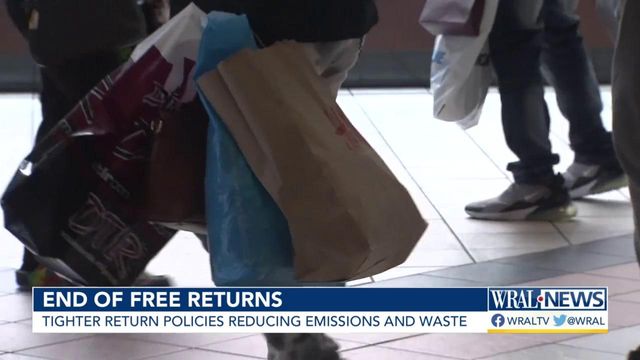The end of free returns could be good for the environment
Returns have been growing year over year, creating millions of pounds of waste and needless emissions from shipping. Major retailers are starting to charge for returns, which could have a positive impact on the environment.
Posted — UpdatedThe popularity of online shopping – and ease of returns – has made the number of packages and CO2 it takes to deliver them skyrocket…. hurting the environment and increasingly, online retailers’ bottom line.
Now companies are pushing for consolidated returns or disincentivizing them all together, which could make consumers think more critically about purchases and ultimately help ease the environmental burden of an ecommerce society built around consumer convenience and one-click shopping.
Consumers are expected to return more than $816 billion worth of retail merchandise purchased in 2022, up from $761 billion the year before, according to the National Retail Federation.
UPS says it is on track to process more than 60 million return packages by January 22nd, a 10% increase over last year.
Many consumers may be surprised to learn that their returns aren't getting resold. "Most returns end up in a landfill," said Opher Baron, an operations management professor at the University of Toronto.
From the estimated 5 billion pounds of returned goods that end up in landfills each year to the needless greenhouse gas emissions of shipping unwanted items back and forth, returns wreak havoc on the environment and the e-commerce economy.
"The solution exists in really taking the entire supply chain or ecosystem of returns starting at the point of return," said Sender Shamiss, the CEO of goTRG, a return logisitics company.
Now, several major retailers including Zara, Athropologie, H&M, and J. Crew are charging between $4 and $7.50 to generate a return shipping label.
"They're not trying to charge you for the shipping," said Shamiss. "They're trying to incentivize you to use a different return method."
Often, that involves visiting an already-staffed brick and mortar store.
Amazon has also been incentivizing consolidated and in-person returns in recent years, charging a fee for other methods.
"Time is money," said Baron. "The fact that you need to return to the store, possibly stand in line, making that trip becomes another psychological barrier to returns."
Tighter policies that could help the business’ bottom line, while reducing emissions and waste, and potentially push consumers to be more mindful purchasers.
Related Topics
• Credits
Copyright 2024 by Capitol Broadcasting Company. All rights reserved. This material may not be published, broadcast, rewritten or redistributed.






